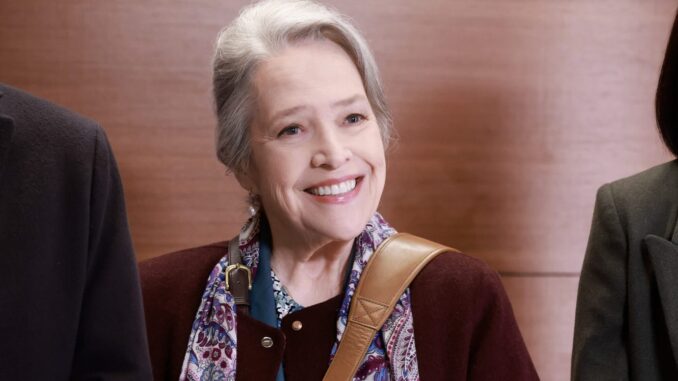
The news hits like a gentle, but persistent, tap on the shoulder, a familiar voice softly informing you that something reliable is about to depart. “CBS is about to pull Matlock from the schedule after November 13 md07.” The words themselves are simple, a routine network decision, but for a certain segment of the viewing public, it’s a quiet tremor in the landscape of their collective comfort. It’s more than just a show; it’s a ritual, a reassurance, and a reminder of a style of storytelling that, like Ben Matlock himself, seems increasingly out of step with the hurried pace of modern life.
For years, Ben Matlock, with his rumpled suit, folksy charm, and uncanny ability to outsmart every slick lawyer and cunning killer with a simple, understated brilliance, has been a bedrock of the television schedule. Sundays, or whatever slot CBS had carved out for him, became a designated hour of calm. There were no explosions, no rapid-fire edits, no morally ambiguous anti-heroes wrestling with existential dread. Instead, there was the quiet satisfaction of a puzzle meticulously solved, a moral compass firmly set, and justice, inevitably, served. In a world increasingly complex and often jarring, Matlock was a televisual security blanket, a warm, familiar hum in the background of a busy week.
The appeal of Matlock lay in its predictable comfort. You knew the drill: a seemingly open-and-shut case, Matlock’s client invariably accused, and then the methodical unraveling. A visit to the crime scene, a chat with an eccentric witness, a subtle glance, and then, in the courtroom, the signature moment where Ben, with a twinkle in his eye and a carefully posed question, would corner the real culprit. It was a victory of wit over brute force, of homespun wisdom over legal theatrics. For many, especially older viewers, it offered a gentle narrative arc that mirrored a simpler perception of justice and decency. It was television that didn’t demand too much, but gave a great deal in return: a sense of order restored, a quiet faith in the good guy winning.
But television, like all living things, must evolve, or so the network executives tell us. The pull after November 13 signals not a failure of quality, but a changing tide. Audiences, or at least the coveted younger demographics, were gravitating towards faster paces, grittier narratives, and edgier humor. The quiet deduction of Ben Matlock, while comforting to some, might have seemed slow, perhaps even quaint, to others. The network, chasing ratings, demographics, and advertising dollars, must make decisions that often feel abrupt and unsentimental to those who’ve formed a bond with the characters and stories. It’s the business side of art, a necessary culling to make room for the new, the flashier, the next big thing.
The departure of Matlock isn’t just the cancellation of a show; it’s a quiet farewell to a particular brand of television, a signal of shifting tides, and a subtle tremor in the landscape of our collective comfort. It’s the end of an era where a show could thrive on gentle wisdom and methodical pacing, where a hero could be a kind-hearted, drawling lawyer in a perpetually rumpled suit. For those who cherished their weekly dose of Matlock, November 13 md07 will mark the moment a reliable, comfortable friend exited the prime-time stage, leaving behind a space that, while perhaps filled by something new and exciting, will carry an echo of a simpler, more reassuring time. And like a meticulously built case, the memory of Ben Matlock and his understated genius will continue to resonate, long after the final credits roll on CBS.
